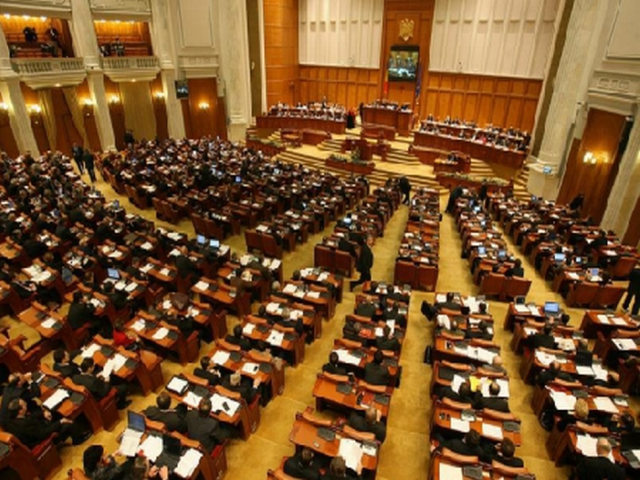Special Parliament Session over Fiscal Code
The Fiscal Code bill will be reviewed in a special Parliament session in late August.
Warning: Trying to access array offset on null in /home/web/rri.ro/public/wp-content/themes/rri/template-parts/content.php on line 53

Warning: Trying to access array offset on null in /home/web/rri.ro/public/wp-content/themes/rri/template-parts/content.php on line 98
România Internațional,
28.07.2015, 12:36
The Parliament
of Romania is to convene in a special session between August the 24th
and 26th, to re-analyse the Fiscal Code bill, as requested by
President Klaus Iohannis. On July the 17th, the head of state
dismissed the bill and sent it back to Parliament for further analysis, on
grounds that its enforcement may give rise to severe economic imbalances.
Liviu
Dragnea, the interim president of the Social Democratic Party, the main party
in the ruling coalition, said that, although so far there are no reasons to
make alterations to the bill, he is still concerned with the statements made
recently by the governor of the National Bank of Romania, Mugur Isarescu. This
is why, Dragnea explained, until the special Parliament session the Finance
Ministry will analyse once again the impact that the tax cuts will have on the
state budget. According to Dragnea, this analysis should convince both the
Presidency and the central bank that the fiscal relaxation measures are
sustainable.
Liviu Dragnea: The Finance Ministry will carry out a new analysis and will also make a
forecast for the coming two or three years, which will perhaps prove a lot
clearer the sustainability and suitability of the measures laid down in the
draft Fiscal Code, which is actually very well received both by the general
public and by the business community.
The Liberal
Opposition however wants a technical evaluation of the draft Code, before the
new vote in Parliament. The co-president of the Liberal Party Alina Gorghiu
says the Liberals will endorse the Code in a form that would support the fiscal
relaxation measures. Alina Gorghiu:
The Liberal Party has never considered voting against this Fiscal Code. The
review that we propose includes an analysis of the technical elements. And if,
by the end of August, we reach the desired conclusions and the figures are in
favour of the fiscal relaxation measures, then we will obviously endorse the
text, irrespective of the amendments that may be made.
One of the most
controversial measures is the slashing of the VAT from 24 to 19% as of next
year. Mugur Isarescu has warned that, because of the impact they would have on
the Gross Domestic Product, the main fiscal relaxation measures, such as the
reduction of the VAT and the social security contributions planned for next
year or the scrapping of other taxes that bring substantial revenues to the
state budget, are simply inapplicable, in economic and financial terms.
According to Isarescu, if the draft Code takes effect in its current form, this
would entail a 2.3% drop in the GDP. The head of the central bank also warned
that these tax cuts should be applied gradually, so as not to jeopardise
Romania’s economic and financial progress.






























